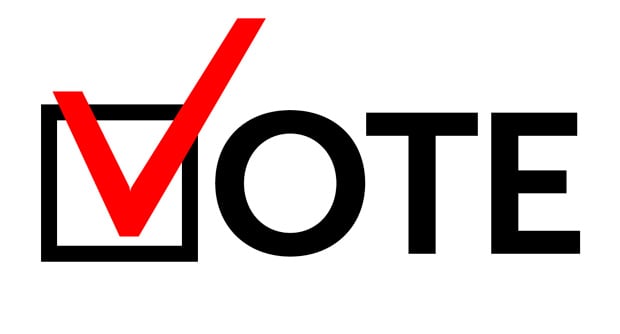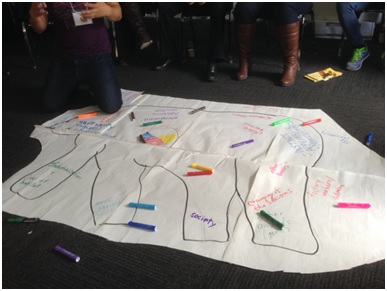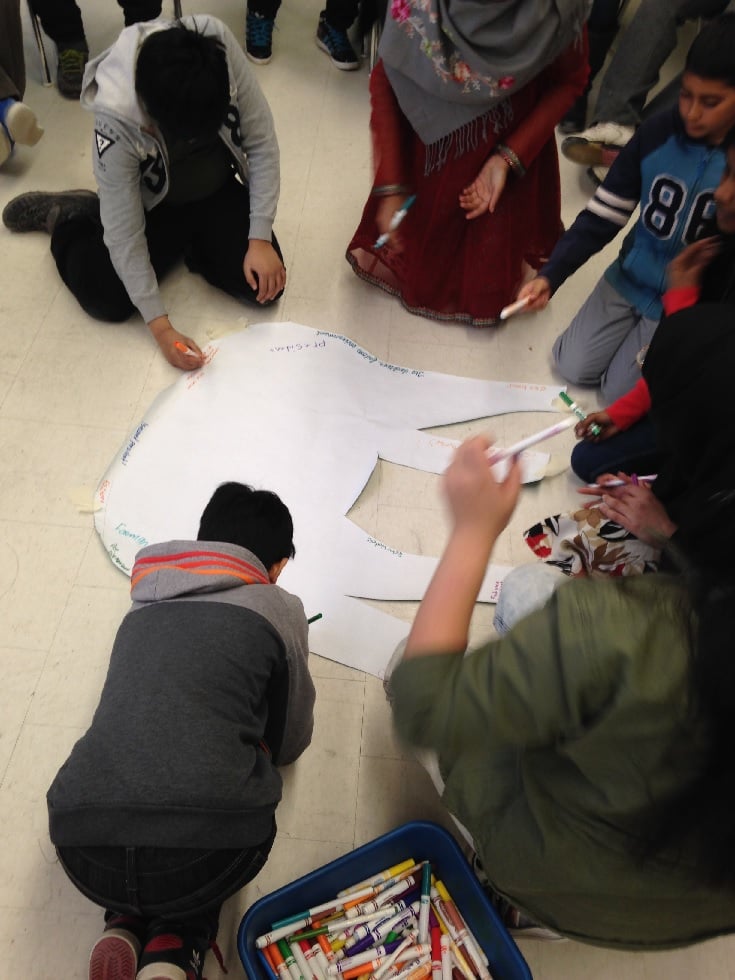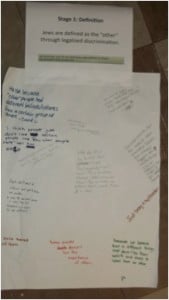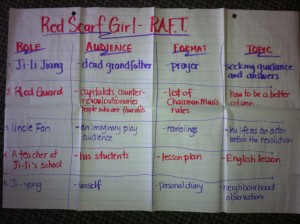As the school year gets under way, many of us are thinking about, planning and setting up our classrooms. We are thinking about our new students, and how we are going to plan our school year to meet the needs of all our students.
Ariel Vente
Recent Posts
The Danger of a Single Story: A Back to School Reflection
Posted by Ariel Vente on September 13, 2015
Topics: Safe Schools, Urban Education, Strategies, Lesson Ideas
Many of the kids I teach at Nelson Mandela Park Public School at Regent Park in Toronto have emigrated from nations in which government corruption is rampant, the electoral system is compromised, and simply trying to exercise a right to vote can lead to threats, attacks, or even murder.
Topics: Choosing to Participate, Canada, Urban Education, Lesson Ideas
Earlier this year I had the honour of presenting a workshop at the Elementary Teachers of Toronto LGBTQI Teacher Conference at Ryerson University. I described the workshop as:
An interactive, participatory drama and movement workshop using the text “The Bear That Wasn’t” to explore our struggles with identity, how our identities are shaped by others and societal expectations and our battle to find our true selves.
Topics: Professional Development, Identity, Middle School, Strategies, Lesson Ideas
Voice, Reward, and Expectations: Reflections on a Middle School Classroom
Posted by Ariel Vente on March 20, 2014
As elementary schools have just passed the mid-point of the school year, I’ve taken some time to reflect on the first half of the year. Schools are part of a larger educational system. However, our classrooms are also a microcosm of society; a community of members with jobs to do, and rules, norms and expectations, which members are expected to follow. But, as we are too well aware, within the larger society, we encounter issues of unfairness and injustice. I’ve been questioning my practice and asking myself: Does my classroom parallel the oppressions of our society? Am I reinforcing and reproducing what is happening in the larger society in my classroom?
Topics: Professional Development, Identity, Urban Education, Regent Park, Middle School, Culturally Responsive and Relevant Pedagogy, Social Justice, Deficit Thinking, reflection
Two years ago, I was offered a few teaching positions at different schools after having a number of interviews within my board. One of these was at Nelson Mandela Park PS, an inner city school in Regent Park in downtown Toronto. After a little debate and reflection, I knew in my heart, I wanted to be part of a school whose namesake was one of the greatest political leaders of our time, a man whom I regarded as one of my personal heroes. It was also a homecoming for me as I did my student teaching and also volunteered in the Regent Park community. I knew choosing to teach at a school named after Nelson Mandela was an honour, and that my teaching practice would have to reflect the values of this great man.
Topics: Human Rights, Identity, History, Memorial, Regent Park, current events, Nelson Mandela, In the news, Social Justice, Personal history
When there is injustice in our world, do we stand idly by and watch it happen? When we hear stories of innocent citizens being targeted by laws meant to oppress and destroy people, do we act? When do you speak up? When should you care? Should you act when it only concerns you?
Topics: Human Rights, current events, In the news, Social Justice, LGBTQ, Personal history
We know that it's not easy to teach about the Holocaust and genocide. For many the topic is very difficult and many students cannot wrap their heads around the scope and magnitude of how these mass murders could occur, particularly about the idea of how an entire nation could allow horrific events like this to happen. Creating that safe, caring classroom is essential in being able to have these difficult lessons. In a middle school classroom, these are essential conversations, as students at this age care and have a strong sense of fairness and justice.
Topics: Facing History Resources, History, Regent Park, Middle School, We and They, Strategies, Lesson Ideas, Holocaust and Human Behaviour, Social Justice
As educators, we want the answers as to why our students aren't learning. Do they have special education needs such as a learning disability? Are they lacking motivation? Did they get enough sleep the night before? Did they have breakfast? But how many of us ever ask: do my students feel safe? Overwhelming brain based research indicates the importance of students feeling safe in schools in order for them to be able to learn.
Topics: Urban Education, Middle School
Regent Park. This is where I teach. Originally, this east end Toronto neighbourhood was a planned garden community, with a mixture of mid rise and high rise rental apartments; originally, a place meant for parents to raise children. What has happened over 60 years in Regent Park is that it has become isolated, closed off from the surrounding city, a place where poor and new immigrants have made homes. The community has had its share of issues common to many big city neighbourhoods such as drugs, gangs and crime, but Regent Park is not a community made up of big city issues, it’s a community made up of diverse people!
Topics: Urban Education, Strategies
One of the challenges many teachers experience is trying to meet the needs of their diverse student population in their respective classes. Differentiated instructions strategies (D.I.) enables teachers to better meet these varied needs and in turn enables students to be successful because their needs are met at their level of readiness, interests and learning styles.
Topics: History, Middle School, Strategies, Lesson Ideas, English Classroom, Literature

